How Access to VR is Transforming English Learning at the University of Poitiers
A French university uses Ovation to boost English communication skills and student confidence.
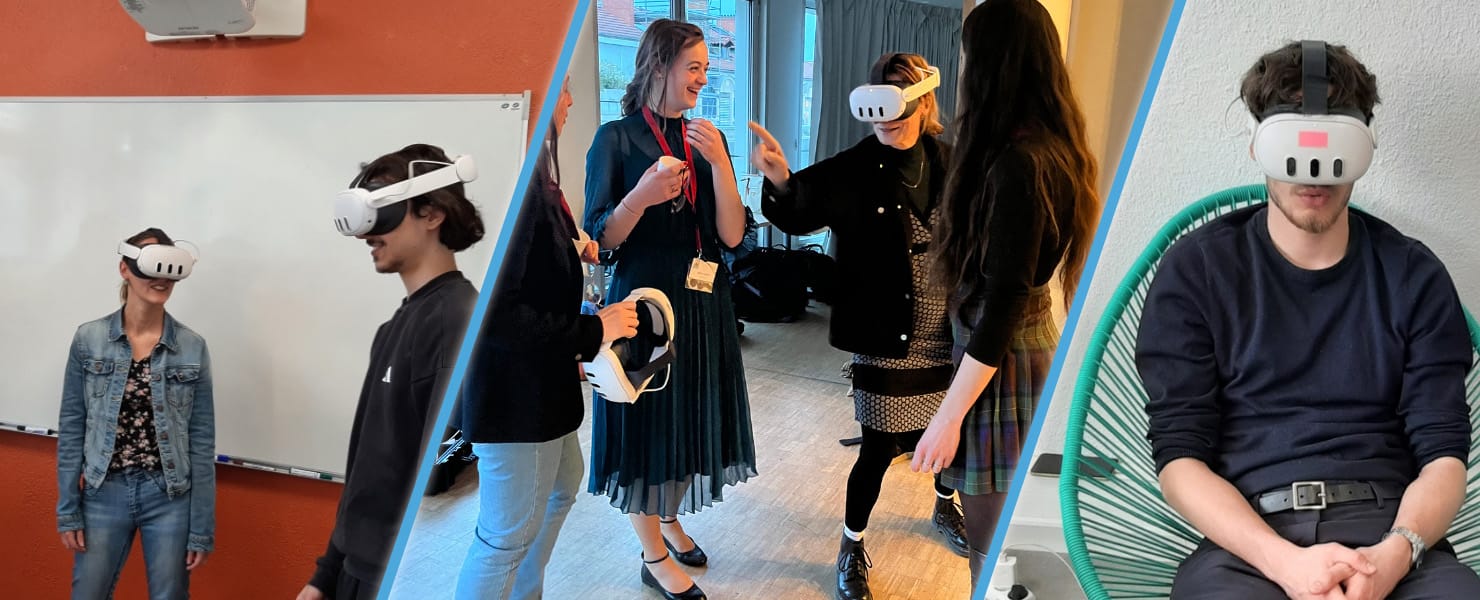
At the University of Poitiers in west-central France, graduate-level biology students face a challenge beyond their technical studies: building confidence in speaking English. Whether presenting research, engaging in discussions, or preparing for future careers, these students needed to develop strong communication skills in front of peers and professors.
Professor Isabelle Lucet, a passionate and forward-thinking educator, recognized this need and sought innovative ways to help her students improve their English. With only a few in-class hours together, she needed a solution that would allow students to gain more speaking experience outside of traditional classroom settings. Her search led her to virtual reality, but initial efforts to build a custom VR environment for public speaking proved too costly and time-consuming . The estimated cost to develop what she really needed was astronomical, and developers projected a timeline of at least two years before the project would be functional.
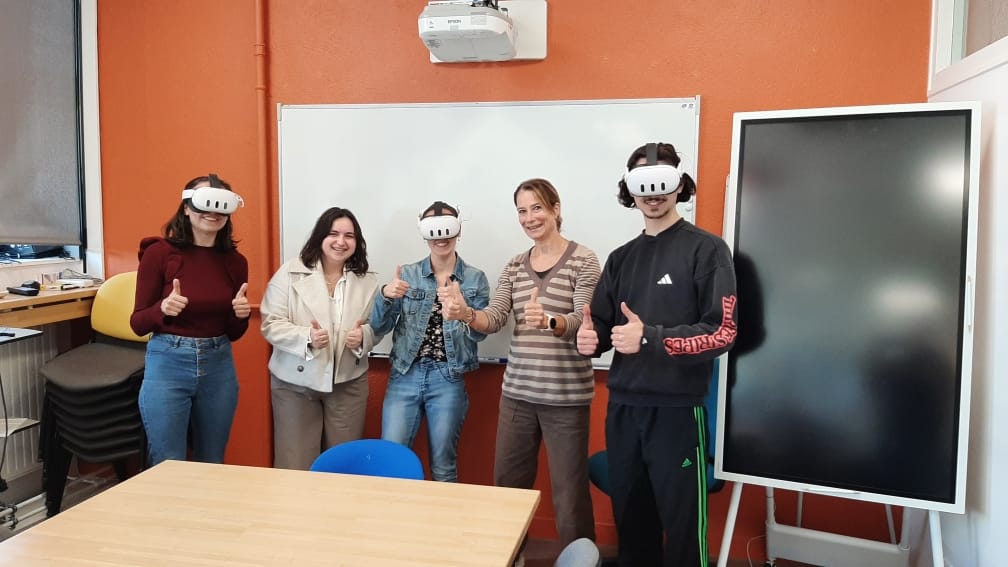
That was when an engineer on the project suggested she check out Ovation, an AI-powered VR tool designed specifically for public speaking and communication skills. To her delight, Ovation already had the immersive venues she needed, eliminating the need for expensive development.
From Trial to Integration: How Ovation Became a Classroom Staple
While the university already had VR technology, it was primarily used for technical simulations. Isabelle was eager to explore how VR could enhance soft skills training. She started with a trial account and recruited a few students to test the platform before making a full purchase. The response was overwhelmingly positive. Students enjoyed the immersive environments and felt that Ovation gave them a unique way to practice English in realistic scenarios.
Seeing the potential, Isabelle decided to integrate Ovation into her teaching. To encourage participation, she offered bonus points to students who used the platform and reported on their experiences. Initially, 65 students participated in the program, and their engagement was striking. Some practiced for just 15 minutes at a time, while others immersed themselves for up to two hours per session. Many students went beyond the assignment requirements and explored additional AI-driven scenarios such as elevator pitches, first-date conversations, job interviews, and even interrogation simulations.
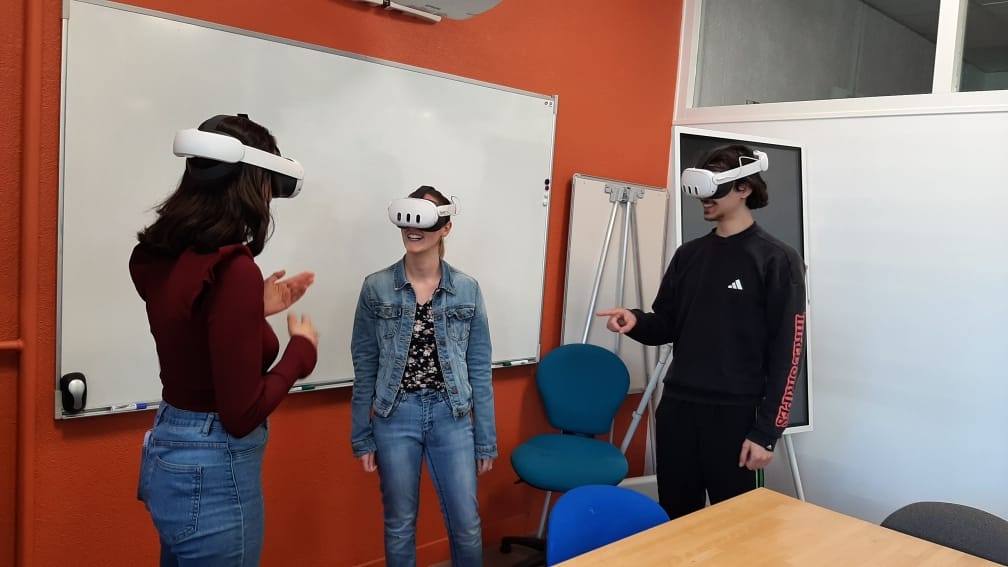
“I had a go at the job interview, and I really liked it. It helped me before my internship interview,” one student shared. Another student was overheard in an interrogation scenario saying to the suspect, “You’re lying to me. I know you’re lying to me!” showcasing how deeply they immersed themselves in the experience.
Expanding Access and Engagement
Recognizing the impact of VR on her students’ learning, Isabelle expanded her program from two to five headsets.
Accessibility was a key consideration since many students could not afford VR technology on their own.
By making more headsets available, she ensured that every student had the opportunity to practice consistently. Engagement remained high, with 25 percent of students continuing to use Ovation regularly, completing a minimum of 5 sessions per semester. Some students even surpassed 15 sessions and asked if they could continue using VR in the following semester.
One major factor driving student engagement was the constant addition of new AI-driven scenarios in Ovation. Students were particularly excited about the public speaking scenarios, where they could practice presenting in a large lecture hall with a virtual audience. The AI avatars responded in real time, offering reactions that mimicked a real audience’s engagement.
Students also enjoyed the interrogation scenario, where they played the investigator role, pushing their critical thinking and conversational abilities. The first-date scenario was another favorite, allowing students to practice casual, real-world conversations in English. The elevator pitch scenario was widely used by students preparing for job applications and academic presentations. Many students also explored the mountain lodge group conversation scenario, where multiple AI avatars engaged them in a dynamic discussion.
“I love the mountain lodge because you talk to multiple avatars instead of just one. The AI avatars ask you questions based on what you are talking about, which makes it feel so real,” one student remarked.
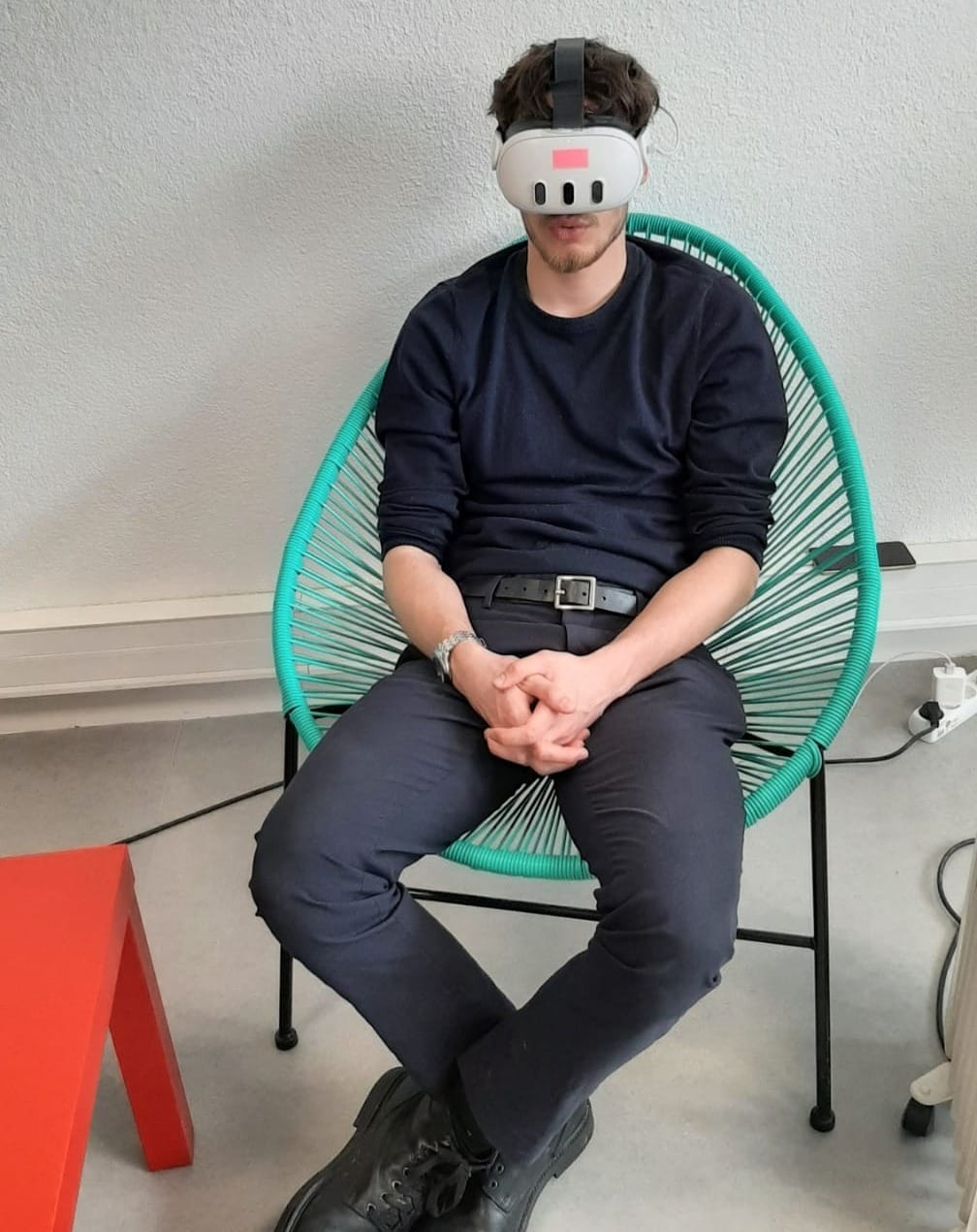
Customizing Ovation for Language Learning
Beyond public speaking, Ovation’s analytics and AI-driven feedback became invaluable tools for language improvement. Isabelle customized feedback Factors to focus on fluency, pronunciation, vocabulary, and grammar. The detailed insights helped students refine their English skills, particularly in areas where they struggled the most.
Students documented their experiences through structured reports. After their first Ovation session, they wrote about their initial impressions. After their fifth session, they provided a deeper reflection on their progress. By the end of the year, they submitted a final report detailing their overall improvement and experiences with the software. Each session was logged with feedback, allowing Isabelle to track their progress and address any technical issues.
The impact of Ovation extended beyond English learning. One of Isabelle’s students, who was independently studying Japanese, realized that she could use Ovation for language immersion practice. Isabelle encouraged her to take advantage of the software and practice Japanese conversations while the headset was available.
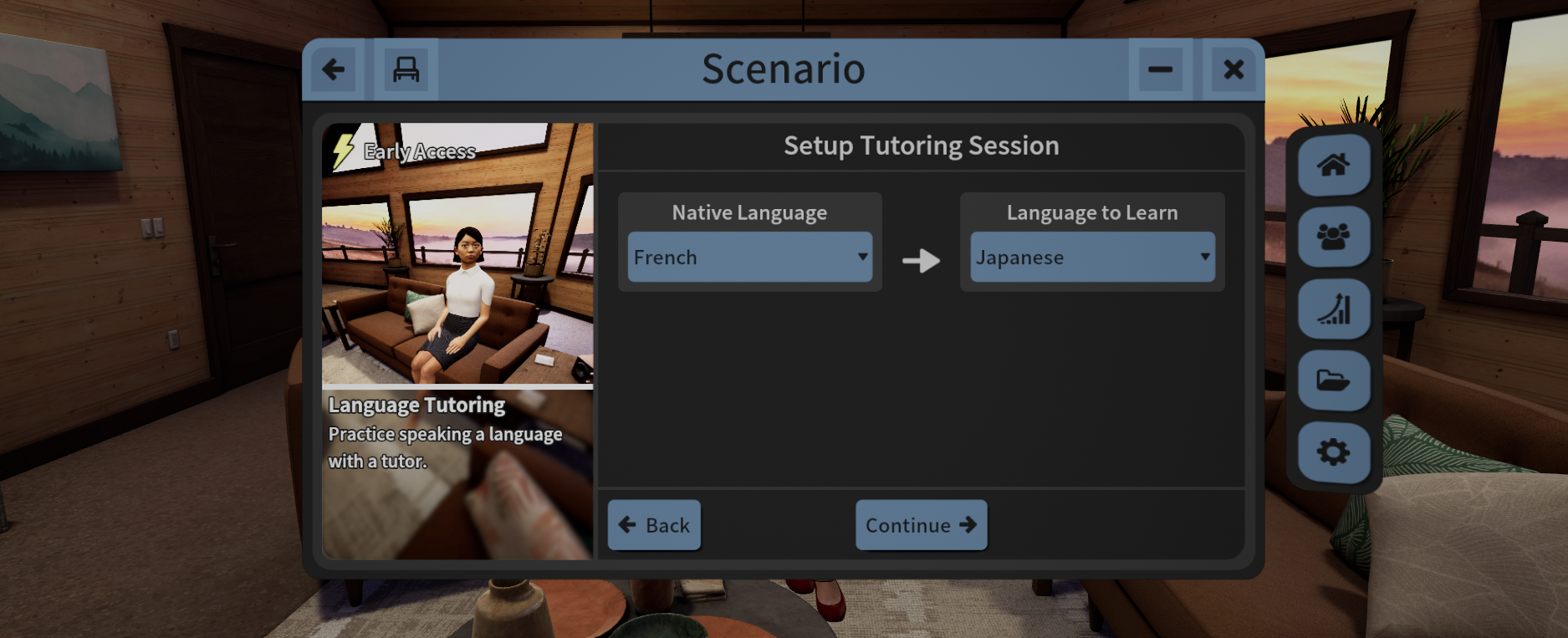
A Champion for VR in Education
Isabelle’s enthusiasm for VR in education has positioned her as a catalyst for language learning, public speaking, interviewing, and group communication skills. She continues to advocate for the integration of VR and AI in education, sharing Ovation’s potential with other educators. She has even introduced colleagues in medical schools to Ovation’s examination room scenario, demonstrating how VR can support communication skills training in clinical settings.
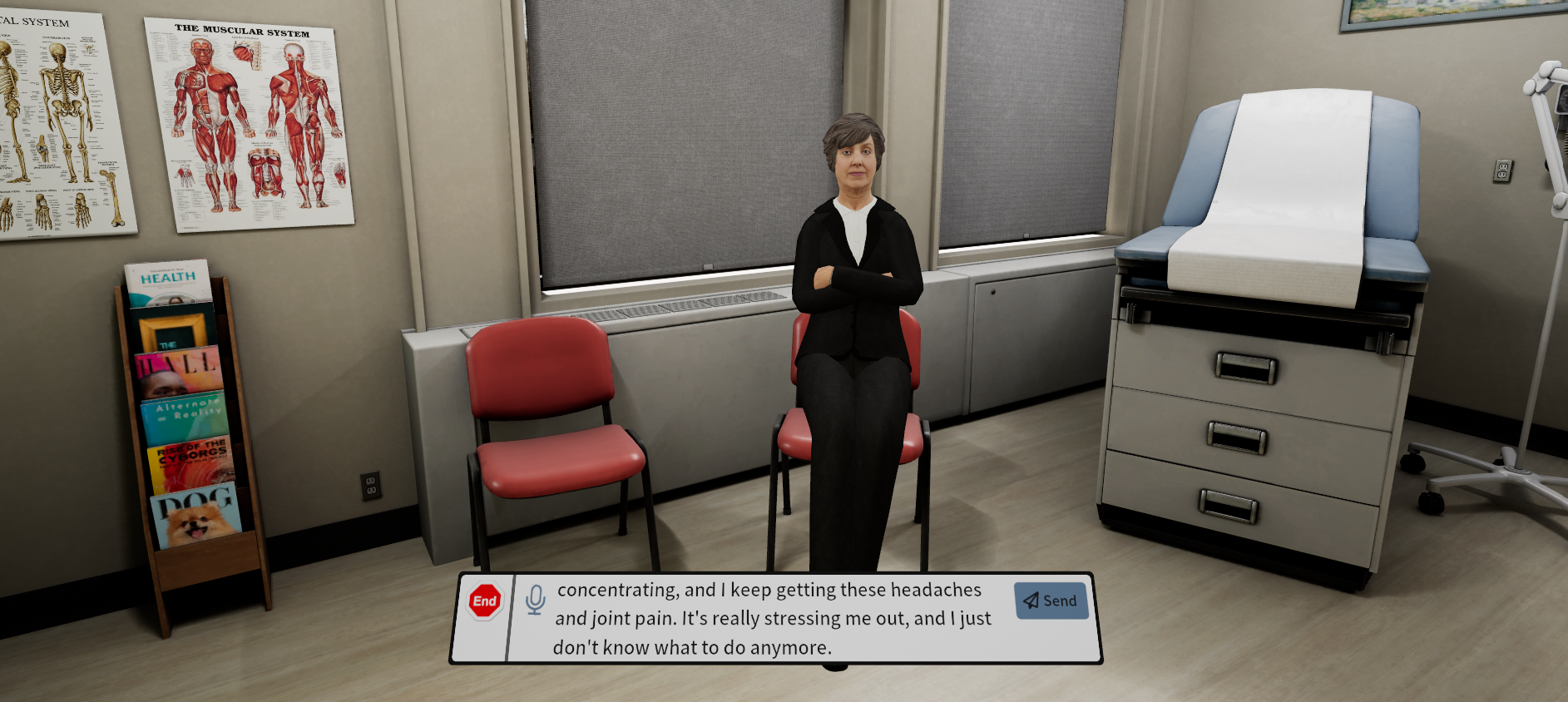
“I see my students gaining confidence every day. They are not just practicing English; they are preparing for their future careers. Whether they are talking about science in a lecture hall, preparing for a job interview, or even engaging in a casual first-date conversation, they are learning how to communicate effectively,” Isabelle said.
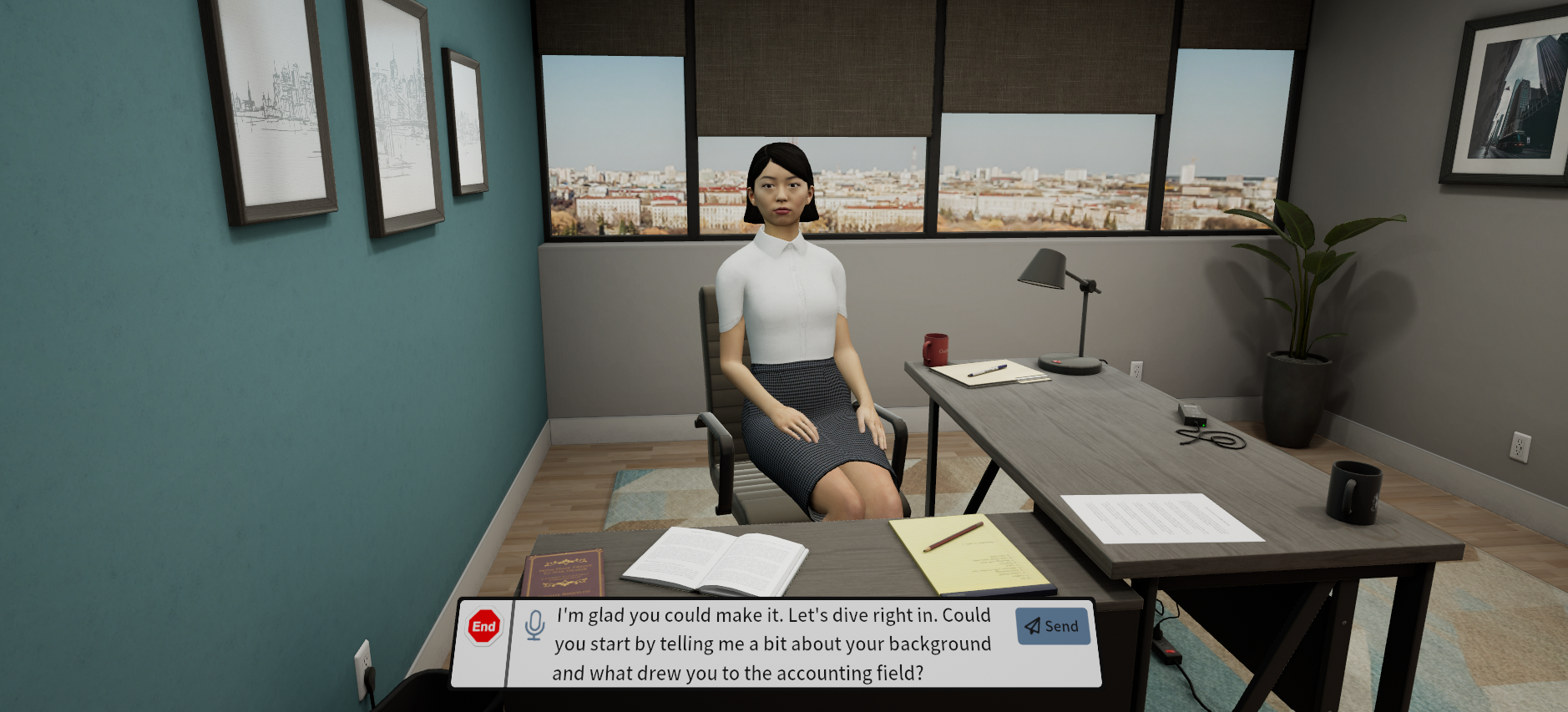
By embracing VR as a learning tool, Isabelle has given her students a unique opportunity to develop confidence and communication skills in ways that traditional classroom settings cannot replicate. As Ovation continues to evolve, students at the University of Poitiers will have even more opportunities to expand their language abilities and public speaking expertise, preparing them for future academic and professional success.
The excitement surrounding new AI-driven scenarios continues to grow. In mid-February, students became impatient when they saw “Coming Soon” labels on upcoming scenarios, eager to try the next wave of immersive experiences. They are particularly enthusiastic about testing the new therapy session scenario, which will further enhance their ability to communicate in diverse contexts.
Isabelle has not only integrated Ovation into her curriculum but has also sparked curiosity and enthusiasm for VR-based learning across campus. Her students are actively seeking out opportunities to continue using the platform, a testament to the power of immersive technology in education.
Interested in bringing Ovation to your college or university? New organizations can try it free for 30 days. Learn more and book a trial today.

